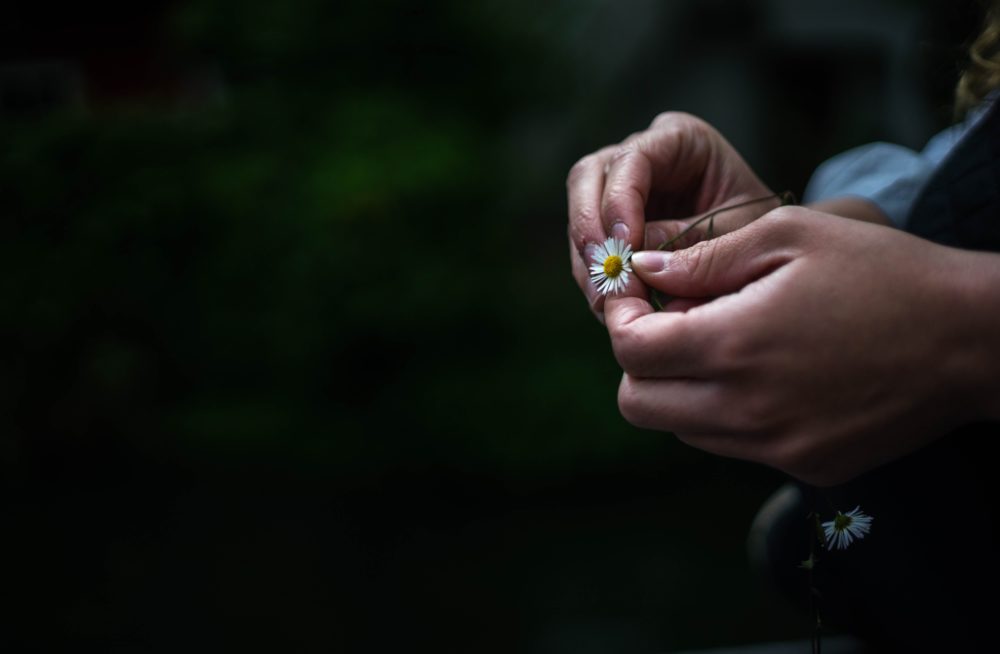Here’s something I’ve learned already about practicing shila: discipline and meditation go hand in hand. Meditation is the foundation of the practice. I know I just talked about this in yesterday’s post, but everything I’m reading about shila emphasizes that cultivating a stable mind is the only way to refrain from harm and to do good. Think about it: if you go through the day attached to your emotions, and unaware of what’s happening inside of you, and inattentive to what’s happening around you, how are you going to keep from harming anyone? How will you know how to do good?
If there’s no clarity, there will be no clear or right action.
Dale Wright breaks this down in such a helpful way in his book The Six Perfections. He says we can think of the connection between meditation and discipline in three ways. First, it’s the act of mindfulness. It’s simply becoming aware of what we do, noticing our habits and patterns and reactions. In many ways, this is the first step of discipline, because you can’t make any big plans to change until you have an idea of what needs changing.
Second, we recognize how our actions have unintended consequences. This brings our awareness to the next level, because it reminds us that we live in an interconnected world where our actions have a ripple effect far beyond what we imagine. If you’re mean to the grocery store clerk, he might turn around and lash out at a co-worker, who goes home and yells at her kids, who go outside and push the neighbor boy around. Our emotions and reactions are contagious. It’s important for us to be mindful about what we’re putting out there.
Here’s another, more uncomfortable way of seeing unintended consequences: every time we purchase a shirt at a big box/fast fashion chain store, we are sending a message to the company that we’re okay with them paying their textile workers less than a living wage and mass producing goods that are less than eco-friendly. We don’t mean to deny someone a living wage when we buy ourselves a nice shirt, but sometimes, that’s the unintended consequence we create. If we want to build a better world, more disciplined choices would be to shop more ethically, or let the company know that we’d like to see them change (and would be okay with the shirt costing a little more as a result). If we really want to “avoid doing harm,” these are the kinds of questions we begin to ask ourselves. (I have so much work to do here!)
Third, we stay idealistic. Yes, really. Think about it: when we just assume things will stay the way they are, or get cynical about anything changing, we’re basically choosing to allow the current state to be our ideal. But if we keep in mind what we want to see in the world, then we become committed to making that happen. This is why one of my Christian mentors says the opposite of faith isn’t doubt, but apathy. It’s when we lose any courage or passion to make the world better that we most profoundly abandon our faith–whether that’s faith in God or faith in one another.
When we practice meditation, we strengthen all three of these areas. We become aware, we recognize unintended consequences, and we stay clear about what we value most.
That’s a discipline worth doing.
Here are some ideas on how to incorporate this:
- Pick one area of your life– food, purchases, speech– and commit to becoming more aware of your patterns. Just start noticing things.
- Consider what might be some unintended consequences from the area/patterns you’ve been examining.
- Explore a few alternative options or paths that might be more aligned with your values. Pick a couple–not all of them at once!–that feel most available to you right now, and make the switch. Know it’s going to be inconsistent as you form new habits. Roll with it. (I got my tea to go yesterday and used a paper cup but today I used a mug! Small victories!)
- What if you committed to meditating just once a week this month? One time a week, to strengthen all you’ll need to practice discipline. That’s doable, right?
- FEEL GOOD that you are showing up to your life and asking questions that will help you live with integrity. Because integrity also brings JOY. Remember, discipline is like a shady spot and a harmonious rhythm. It is a gift to our life, not a burden.
Keep the faith, friends.
This is part of the Paramita Project. You can learn more about it here and read my first post about discipline here.




